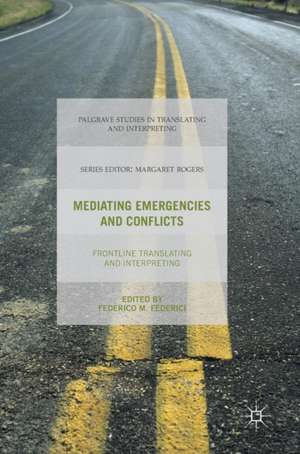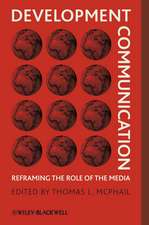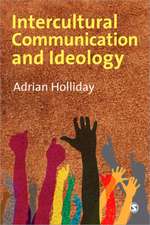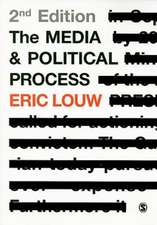Mediating Emergencies and Conflicts: Frontline Translating and Interpreting: Palgrave Studies in Translating and Interpreting
Editat de Federico M. Federicien Limba Engleză Hardback – 2 aug 2016
Din seria Palgrave Studies in Translating and Interpreting
- 8%
 Preț: 601.13 lei
Preț: 601.13 lei -
 Preț: 318.07 lei
Preț: 318.07 lei - 20%
 Preț: 816.70 lei
Preț: 816.70 lei - 9%
 Preț: 1608.14 lei
Preț: 1608.14 lei - 15%
 Preț: 645.60 lei
Preț: 645.60 lei - 18%
 Preț: 942.01 lei
Preț: 942.01 lei - 18%
 Preț: 777.83 lei
Preț: 777.83 lei -
 Preț: 483.12 lei
Preț: 483.12 lei -
 Preț: 385.84 lei
Preț: 385.84 lei -
 Preț: 424.61 lei
Preț: 424.61 lei - 18%
 Preț: 726.06 lei
Preț: 726.06 lei - 18%
 Preț: 731.41 lei
Preț: 731.41 lei -
 Preț: 453.01 lei
Preț: 453.01 lei - 15%
 Preț: 637.78 lei
Preț: 637.78 lei - 15%
 Preț: 562.00 lei
Preț: 562.00 lei - 18%
 Preț: 950.33 lei
Preț: 950.33 lei - 18%
 Preț: 731.73 lei
Preț: 731.73 lei - 18%
 Preț: 731.10 lei
Preț: 731.10 lei - 18%
 Preț: 950.96 lei
Preț: 950.96 lei - 15%
 Preț: 636.80 lei
Preț: 636.80 lei - 15%
 Preț: 644.30 lei
Preț: 644.30 lei -
 Preț: 386.22 lei
Preț: 386.22 lei - 18%
 Preț: 948.47 lei
Preț: 948.47 lei - 15%
 Preț: 580.36 lei
Preț: 580.36 lei -
 Preț: 379.09 lei
Preț: 379.09 lei - 18%
 Preț: 1402.23 lei
Preț: 1402.23 lei - 18%
 Preț: 781.77 lei
Preț: 781.77 lei - 15%
 Preț: 642.68 lei
Preț: 642.68 lei - 15%
 Preț: 644.95 lei
Preț: 644.95 lei - 15%
 Preț: 640.55 lei
Preț: 640.55 lei - 15%
 Preț: 696.18 lei
Preț: 696.18 lei - 15%
 Preț: 636.45 lei
Preț: 636.45 lei -
 Preț: 484.69 lei
Preț: 484.69 lei - 15%
 Preț: 645.14 lei
Preț: 645.14 lei
Preț: 387.58 lei
Nou
Puncte Express: 581
Preț estimativ în valută:
74.17€ • 80.54$ • 62.30£
74.17€ • 80.54$ • 62.30£
Carte tipărită la comandă
Livrare economică 22 aprilie-06 mai
Preluare comenzi: 021 569.72.76
Specificații
ISBN-13: 9781137553508
ISBN-10: 1137553502
Pagini: 208
Ilustrații: XV, 215 p. 3 illus., 2 illus. in color.
Dimensiuni: 148 x 210 x 18 mm
Greutate: 0.4 kg
Ediția:1st ed. 2016
Editura: Palgrave Macmillan UK
Colecția Palgrave Macmillan
Seria Palgrave Studies in Translating and Interpreting
Locul publicării:London, United Kingdom
ISBN-10: 1137553502
Pagini: 208
Ilustrații: XV, 215 p. 3 illus., 2 illus. in color.
Dimensiuni: 148 x 210 x 18 mm
Greutate: 0.4 kg
Ediția:1st ed. 2016
Editura: Palgrave Macmillan UK
Colecția Palgrave Macmillan
Seria Palgrave Studies in Translating and Interpreting
Locul publicării:London, United Kingdom
Cuprins
Chapter 1: Introduction: a state of emergency.- PART I: EMERGENCIES IN A MULTILINGUAL CONTEXT.- Chapter 2: Interpreting in the Emergency Department. How context matters for practice.- Chapter 3: Anybody there? Emergency and Disaster Interpreting in Turkey.- Chapter 4: Training Translators for Crisis Communication: The Translators Without Borders Example.- Chapter 5: Translator’s and Interpreter’s Challenges of the 21st Century in the Russian Arctic: Mediating Emergencies.- PART II: REPRESENTATIONS OF EMERGENCIES.- Chapter 6: Interpreting in a State of Emergency: Adding Fuel to the Fire.- Chapter 7: Representing the War in Afghanistan as an American War to Russian Audiences.- Chapter 8: Ghostly Entities and Clichés: Military Interpreters in Conflict Regions.
Recenzii
“Critically surveys the literature in translation and interpreting studies related to emergencies and crisis communication, pointing to gaps related to key issues … . Mediating Emergencies and Conflicts can provide useful insights to disaster management studies with regard to the need for adequate language mediation in emergency situations. The field work and analysis presented in the various chapters also paves the way for further testing and challenging of current translation and interpreting training and research models.” (Myriam Salama-Carr, Translation Studies, Vol. 11 (2), 2018)
Notă biografică
Federico M. Federici is Lecturer at University College London, UK. Previously he designed and directed the MA in Translation Studies at Durham University, UK (2008-2014), where he founded and directed the Centre for Intercultural Mediation. He was member of the Board of the European Master's in Translation Network (2011-2014). Among his publications are the book Translation as Stylistic Evolution (2009) and the volume co-edited with Dario Tessicini Translators, Interpreters and Cultural Mediators (2014). His research focuses on the role of translators as intercultural mediators, and on the reception of translated texts.
Textul de pe ultima copertă
Contributors to this volume discuss different types of emergencies and conflicts and how challenging these multilingual operational environments are for linguists. The growth in reach and number of international relief operations has exposed the limits of current research into these challenges. Evidence in disaster management studies suggests communication remains a major operational issue. This book calls for enhanced focus on the role of translators and interpreters in emergencies by discussing existing research and questions which have emerged from experience in the field. Contributions in this volume undeniably demonstrate the need for multidisciplinary studies in mediating multilingual emergencies. They consider emergencies in hospitals (Cox and Lázaro Gutiérrez), in disaster response (Dogan), in bespoke training to translators in fast-developing crises (O’Brien), and in planning responses in predictably dangerous habitats (Razumovskaya & Bartashova). The volume also illustrates scenarios in which discourse on language mediation shows bias by limiting political dialogues (Al Shehari), by conditioning news reporting (Skorokhod), and by enforcing stereotypical notions of linguists in wars (Gaunt).
Federico M. Federici is Lecturer at University College London, UK. Previously he designed and directed the MA in Translation Studies at Durham University, UK (2008-2014), where he founded and directed the Centre for Intercultural Mediation. He was member of the Board of the European Master's in Translation Network (2011-2014). Among his publications are the book Translation as Stylistic Evolution (2009) and the volume co-edited with Dario Tessicini Translators, Interpreters and Cultural Mediators (2014). His research focuses on the role of translators as intercultural mediators, and on the reception of translated texts.











